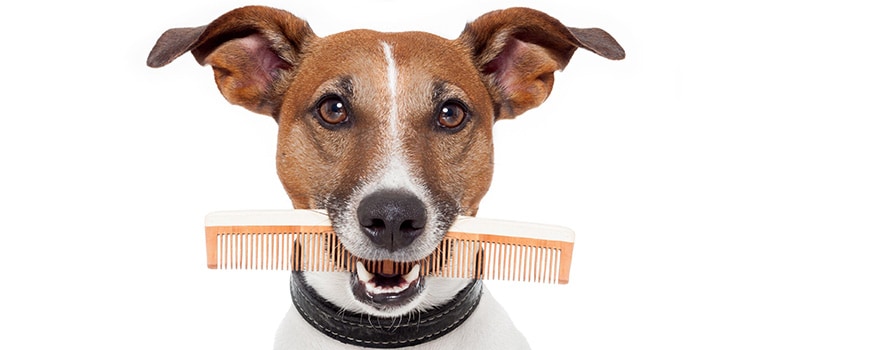Have you ever wonder why should you get a Border Collie? Although Collies are wonderful dogs, they are not for everyone. They are active and curious dogs, more so than most. If owners are not appropriate to the breed, problems can arise for both Border Collie and owner. Here are some pros and cons to own a Collie.
The characteristics required of a Border Collie owner are complex and uncommon.
Lifestyles
Border Collies can live well in the city given plenty of exercise, something to do, plenty of attention, and a lot of time. If you live in the city and are exploring the possibility of getting a Border Collie, ask yourself the following questions:
- How much are you home?
- Does your job require you to travel with any frequency?
- What do you enjoy doing in your free time?
- Are there facilities close to your home for exercising your pet?
- Do you have the interest and the time to engage in Obedience, Agility, or other forms of training?
The questions listed above are measures of the time you have, and are willing to spend, with your Border Collie. You do not have to sacrifice your social life, abandon your spouse, or give up other interests to own a Border Collie, but you will have to make adjustments.
- If you live alone and travel as a regular part of your job, consider another breed.
- If you do not live within easy commuting range of Obedience classes, jogging tracks, and/or a park, maybe some other dog will serve you better.
- Finally, if you would rather spend time at a sports bar, a concert, or an athletic event than working your Border Collie, do yourself a favor and buy a stuffed dog.
- If you cannot be home at a predictable hour, Border Collies are not for you. For that matter, if you cannot make it home at a predictable hour, no breed is really for you.
Border Collies in the Suburbs
Suburbanites have to ask themselves the same questions about their time and their willingness to share it with a Border Collie. Living in the suburbs may have the disadvantage of a longer commute to work, providing less time for you to spend with your Border Collie.
There  may be offsetting advantages in the easy availability of veterinary services, places to exercise your Border Collie, and the accessibility of Obedience classes and trials. Similarly, suburban life will offer the choice of keeping your Border Collie in the house, in the yard, or some combination of the two.
may be offsetting advantages in the easy availability of veterinary services, places to exercise your Border Collie, and the accessibility of Obedience classes and trials. Similarly, suburban life will offer the choice of keeping your Border Collie in the house, in the yard, or some combination of the two.
If you do live in the suburbs, consider the neighbors. Most suburban areas are relatively lax in their control of dogs. Border Collies are not especially prone to barking but they are dogs and may bark excessively if particularly bored. Make sure your neighbors will not be offended by the occasional bout of barking or cat chasing.
Most bad habits such as barking and cat chasing can be cured, but they have to happen before they can be cured. Make sure your neighbor is a dog lover, has no special health problems, and will be tolerant of a new dog. More important, you will have to do everything in your power to make sure that your Border Collie will not be a nuisance to the neighborhood.
He should be in his own yard at all times when he is not on a leash. A well-bred, handsome Border Collie tunneling through a flower bed is no more acceptable to your neighbor than having a mangy half-breed do the same thing.
To make your dog happier in the suburbs, consider providing your Border Collie with the following:
- A yard fenced with wiring that is escape-proof.
- A play area for your Border Collie that will allow him to dig to his heart’s content. Sandboxes are made for this.
- A yard cleared of the toxic plants and other safety hazards that could cause your pet harm.
- A supply of toys for your Border Collie in his play area. This will not only give him something to do, it will help keep him out of trouble in other areas of the yard.
- Constant anti-chasing training. Discourage Fleet from chasing the neighborhood cats. It will keep him from getting in bad with your neighbors and it could well save him injury or death if he ever escapes your yard.
Country Border Collies
Even if you live in the country you may not be Border Collie material. The questions asked of the city dweller apply to people from the country too. Do you have the time to devote to a Border Collie?
If you live in the country and commute to the city to work, you may not be in any better shape than the suburbanite or city dweller. Obviously, cattle and sheep ranchers have a use for Border Collies. Exercise is typically not an issue on a ranch.
Housing: Housing will be an issue, even in the country. The country Border Collie will need the same dry, draft-proof housing as its suburban or city cousins. For the country dog, the outside kennel is more practical than other forms of housing.
True, Border Collies can live in country homes as well as they can live in urban apartments. Problems may arise in the country because country Border Collies, particularly working dogs, regularly come in contact with substances most homeowners do not want in their houses.
The outside kennel offers warmth, protection from the elements, and a high level of sanitation.
Grooming: Another issue that may be even more important for the country Border Collie than those in the city or the suburbs is grooming. Working dogs and those nonworking Border Collies that are often in fields and forests are exposed to the burrs and briars that grow there.
These briars and burrs cause matting if they are not removed as quickly as possible. The regular grooming recommended for the city is even more important for the country Border Collie. Rough coated Border Collies are especially at risk.
Border Collies with Children
Having been bred for centuries to “look to” humans, it is not surprising that aggression toward people is rare in the breed.
That is not to say that the odd Border Collie cannot be bad-tempered or aggressive, just that such dogs are much harder to find than in some other breeds.
Given the appropriate training, Border Collies are ideal for children.
Older dogs have an advantage over puppies and younger dogs. They are calmer, typically more experienced with a wider range of people, and more tolerant of the bizarre ranges of behavior that humans can exhibit.
Young Border Collies, on the other hand, have nothing to work on except energy, herding instinct, and intelligence. They are more than willing to play with children and can delight entire neighborhoods.
However, the herding instinct tells them that it is perfectly acceptable to nip whatever they are trying to herd. It is hard for a toddler to accept the fact that the painful little nips are not malicious.
Starting as early in their life as possible, young dogs should be trained not to herd anything other than stock. Even then, they should work only on command.
When a Border Collie attempts to “herd” something he should not, he must be corrected as quickly as possible. If, for instance, your Border Collie tries to bunch the neighbor’s children, stop him and shout “NO!”
Any time the behavior occurs again, let him know that you are displeased. It should not take long for him to learn what to work, and when.
Possible Problems with Other Pets
Because Border Collies are unique dogs, they offer unique problems. A Border Collie around cats or other pets can be something of a problem. The inbred herding instinct may pop to the surface around cats, ducks, rabbits, or other small animals.
Ducks, rabbits, and other pets may be put into some danger if a young dog is allowed to move them around in hot weather.
Cats
Some dogs may choose to chase cats. This may not seem like much of a threat considering the number of cats chased every day, but Border Collies are a little faster than most breeds of dogs.
Even given an exceptional start, most cats will have a problem escaping from a young, excited Border Collie. It is rare, even when the Border Collie catches the cat, that any real damage is done.
About the only real damage that is likely to be done is to the relationship between you and the cat’s owner. This is another area of focus for training.

